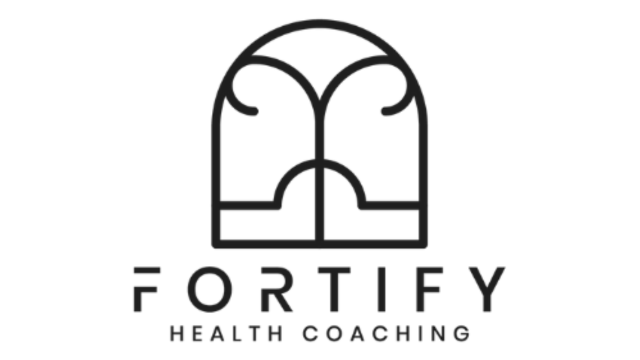
The Connection Between Hypothyroidism and Female Reproductive Health
Nov 05, 2025Written by Sarah Bishop, MS Exercise Science, Functional Health Coach
When you think thyroid, what is the first thing you think about?
For many, it’s metabolism. One of the thyroid gland's main jobs is controlling metabolic rate. However, keep in mind - metabolism is the sum of all reactions in the body that provide energy for life!
In addition, every cell in your body has a thyroid hormone receptor.
Understanding this, you can begin to see how the health of your thyroid has downstream effects on digestion, blood sugar, temperature regulation, gallbladder and liver function, cholesterol and lipid metabolism, steroid hormone production, cardiovascular health and more.
The effects are also bidirectional. The thyroid gland primarily secretes Thyroxin (T4), known as the primary thyroid hormone — and it is the most abundant thyroid hormone. However, T4 is considered to be largely metabolically inactive, and the body must convert T4 to triiodothyronine (T3), a process that occurs in the liver, gut, and peripheral tissues. You can think of Free T3 as the active thyroid hormone, as it is unbound and “free,” making it available for utilization at the tissue level.
Just as the thyroid affects other organs, impaired liver, kidney, and gut function can lead to thyroid issues. For example, when gut health is compromised due to infections or low stomach acid (which can also be caused by low thyroid function), absorption of key nutrients such as zinc and selenium becomes impaired. Without these, T4 may not adequately convert to T3 — since these minerals are essential to that process.
It is imperative that we consider the body as a whole when addressing any health concerns and understand these nuances to create comprehensive solutions.
For the purpose of today’s blog, let’s dive into how a dysfunctional thyroid can affect your hormones and fertility.
Hypothyroidism and Female Reproductive Health
The presence of hypothyroidism, or an under-functioning thyroid, has steadily increased in the United States since 2009 — and many of those increased cases are subclinical. In addition, women are 5–8x as likely as men to develop a thyroid condition.
As coaches, hypothyroidism and the associated symptoms commonly present in the women we work with.
You can have a thyroid that slows down and isn't functioning optimally without having a hypothyroid diagnosis. Comprehensive testing and evaluating results through a functional health lens can help us identify if that’s the case for you.
Common Symptoms of Hypothyroidism
-
Feeling cold / cold intolerance
-
Fatigue
-
Dry skin
-
Hair loss
-
Constipation
-
Brain fog
-
Trouble sleeping
-
Anxiety / depression
-
Difficulty losing weight
-
Elevated cholesterol
-
Low libido
-
Menstrual irregularities
Menstrual Cycle Irregularities and Thyroid Health
If you notice your cycles are irregular in length, you’re missing your period altogether (amenorrhea), your periods are heavy or light, or you consistently have premenstrual spotting — these could be signs of hypothyroidism or a sluggish thyroid.
Thyroid hormones T4 and T3 play crucial roles in regulating the menstrual cycle. These hormones influence the function of the hypothalamic-pituitary-ovarian (HPO) axis, which controls reproductive hormone secretion and ovulation.
In addition, thyroid hormone is also important for the ovarian follicles and the development of healthy eggs.
Hypothyroidism (underactive thyroid) or even subclinical hypothyroidism, as well as hyperthyroidism (overactive thyroid), can disrupt the delicate balance of reproductive hormones. We more commonly see low thyroid function in clients we work with, but both can cause irregularities due to their effects on metabolism as a whole.
Women need adequate thyroid hormone to ovulate and in turn, make progesterone. Even if you are still ovulating, if the corpus luteum doesn’t get adequate thyroid hormone, not as much progesterone will be produced and you may experience a short luteal phase (less than 10 days).
This can impact chances of pregnancy and cause dysfunction throughout the body due to the importance of ovulation during a female’s reproductive years.
What About PMS and Estrogen Dominance?
When estrogen is unopposed due to low progesterone levels, this leads to a state of relative estrogen dominance.
Estrogen dominance is a cause of many hormonal symptoms, such as enhanced PMS. In addition, when the thyroid is sluggish, estrogen isn’t able to detoxify efficiently, leading to estrogen accumulation in the body.
To make the situation even trickier, excess estrogen can negatively impact thyroid function — binding up free thyroid hormones so they’re unable to enter your cells and do their work.
Ways You Can Start Nourishing Your Thyroid
These are some areas we suggest starting with if you’re looking to support your thyroid, or recently found out your thyroid isn't functioning as optimally as it could:
1. Eat Enough Consistently
Prioritize balanced meals throughout the day. Under eating can suppress thyroid function and hormone conversion.
2. Stick to a Regular Sleep Schedule
Aim for 7–9 hours of sleep per night. Sleep is a critical part of thyroid regulation and recovery.
3. Focus on Micronutrients
Some key nutrients for thyroid health include:
Selenium: brazil nuts, oysters, shrimp, salmon, beef, eggs, beans
B Vitamins: animal proteins, nutritional yeast, avocado, spinach, chickpeas
Vitamin A: liver, eggs, dairy, cod liver oil, carrots, sweet potato, leafy greens
Copper: beef liver, bee pollen, oysters, cacao, potatoes, shellfish
Potassium: potatoes, carrots, leafy greens, coconut water, eggs, salmon, beets
Zinc: oysters, eggs, meat, dairy
Magnesium: cooked greens, almonds, beans, avocado, salmon, dark chocolate
Iron: animal proteins, spinach (pair with Vitamin C–rich foods for better absorption)
Iodine: seaweed, fish, iodized salt, eggs
Vitamin D: sunlight, fatty fish, eggs
4. Support Gut Health
-
Poor gut health is a driver of inflammation, which can cause thyroid adaptations.
-
If digestion isn’t up to par, you’re more likely to develop nutrient deficiencies.
5. Manage Stress
Stress directly impacts thyroid function through cortisol and inflammation.
6. Support Liver Health
Your liver plays a major role in thyroid hormone conversion and estrogen detoxification.
(Download our free Liver Support Guide [HERE])
7. Get Proper Testing
Consider your health history to understand nuances and create comprehensive solutions. We will be discussing thyroid testing in future blog posts.
You can also get an idea of how your thyroid is functioning at home (and better understand your cycle!) by measuring your basal body temperature (BBT).
Optimal is around 97.2°F first thing in the morning, indicating healthy thyroid hormone levels.
Final Thoughts
Optimizing thyroid hormone has benefits for your metabolism, energy levels, reproductive health, physique goals, cardiovascular health, gut health, and hormones.
The thyroid impacts how the entire body runs.
Through evaluating your health history, symptoms, labs, and making the appropriate lifestyle and diet adjustments, supporting the body as a whole, we can create a path for healing.
In addition, sometimes medications are important and necessary parts of that healing. We often work in conjunction with clients’ doctors to help them achieve their health and physique goals.
If you are curious about what working with us looks like, let’s connect to start your journey toward better health.

